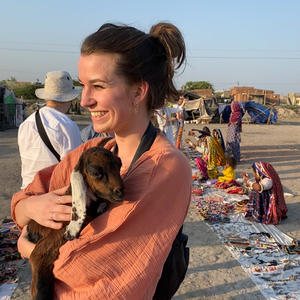If you thought planning a trip to Jordan only involved figuring out all the places you’d like to visit, no one could blame you. Floating in the Dead Sea, watching the setting sun turn your world to orange in the Wadi Rum Desert, seeing Petra glow by candlelight and finding your peace in the Middle East is enough to get anyone excited. And that’s only a handful of the best places to visit in Jordan. But whether you plan to travel Jordan solo or as part of a small group, it’s always handy to know the practical tips of travelling a country before you get suitably starry-eyed.

Best time to go to Jordan

The weather can get stiflingly hot in the height of summer, but winter nights can drop to below freezing. It is mostly desert after all. The optimum time to visit is in Spring, from March to May. The temperature ranges from the teen to the early thirties in some areas, but with the wildflowers blooming and the Wadi Rum awash with intense colours, it will also be the most beautiful time to visit.
October to November, between the scorching summer months and before winter hits, is also a great time to visit.
Food and drink in Jordan
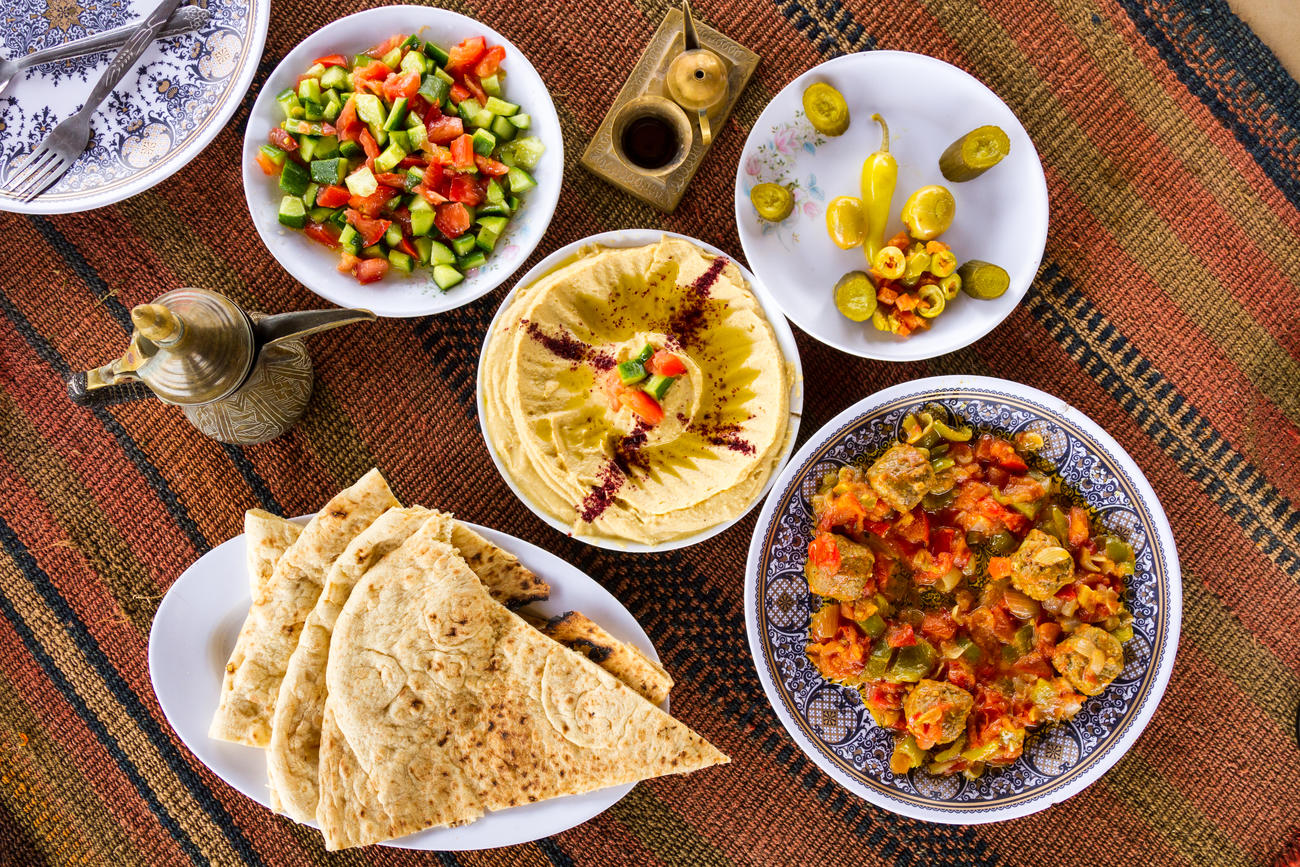
Mansaf is the national dish of Jordan, so of course, that makes it a must-try! Thankfully, it’s delicious, so you won’t need much convincing. Simply paired with aromatic rice and flatbread, Mansef is slow-cooked lamb in a Jameed sauce, which is a hard-fermented yoghurt made from goats’ cheese. It’s quite salty, but that’s how they preserve the cheese - by adding salt to milk over time, stirring until it solidifies, which helps preserve it in the heat of the desert. Once it’s ready to be eaten, it’s cooked into a creamy, rich and slightly tart sauce. And then dig in! Literally. The traditional way to eat this is with your right hand, rolling it all up in a ball and popping it in one go.
In fact, the food in Jordan is a real highlight and with such variety, it caters to all kinds of palettes. Meat is a heavy staple in Jordan’s cuisine, you’ll see shawarma stands a-plenty, but vegetarians fair well with all the hummus, salads and herby falafel you could possibly want. You won’t be leaving Jordan hungry, that’s for sure...
Drinking alcohol is widely accepted and can be found in restaurants and bars, but drink moderately and be respectful. Jordan is a predominantly Muslim country, so keep it classy!
Is the tap water in Jordan safe to drink?
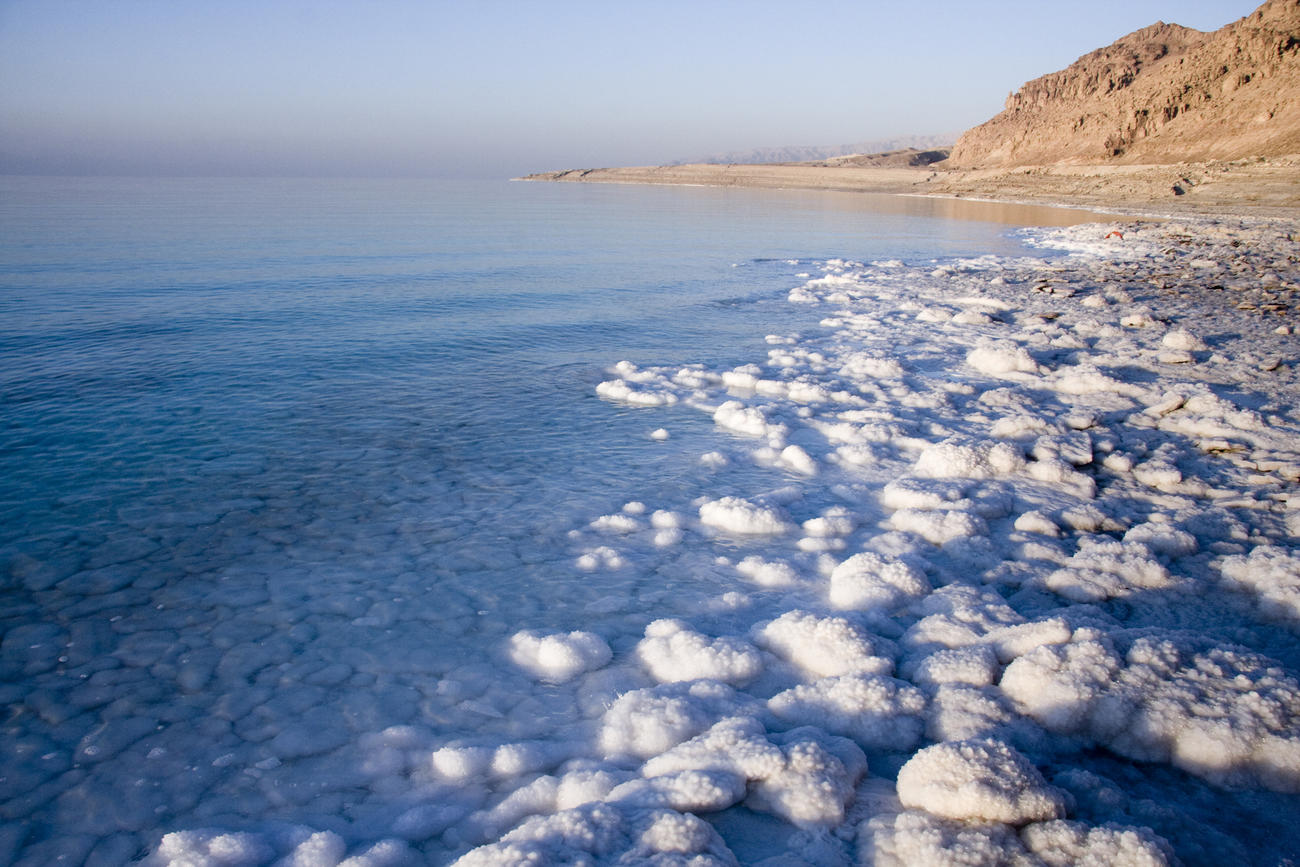
Bear in mind that tap water is not safe to drink. You can buy bottled water in most places but if you’d like to avoid adding to the single-use plastic problem, we’d advise investing in a Water-to-Go filtered bottle which eliminates 99.9% of microbiological contaminants from any non-salt water source (so don't fill up at the Dead Sea!) Considering Jordan can get very hot, you’ll be able to fill up your water bottle and stay hydrated all throughout the day.
Visas for Jordan
Most European passports will need a visa for Jordan, but it can be obtained upon arrival. In fact, it’s cheaper this way than to arrange one prior to your trip. A single-entry visa is valid for a month and costs 40 Jordanian Dinar, which is just under £45.
For American Citizens, a passport valid beyond 6 months from date of travel is required. Visas are issued at Queen Alia International Airport and most international land border crossings upon arrival. The exception is that visa’s are not issued at the King Hussein/Allenby Bridge border crossing with Israel. You must be in possession of a valid Jordanian visa in advance, or a special entry permit, to enter Jordan at this crossing. Cost for a single entry visa is 40 Jordanian Dinars (JD), a multiple entry is 60 JD.
For other visa requirements, it’s best to check with the Jordanian Tourist Board.
Is Jordan safe?
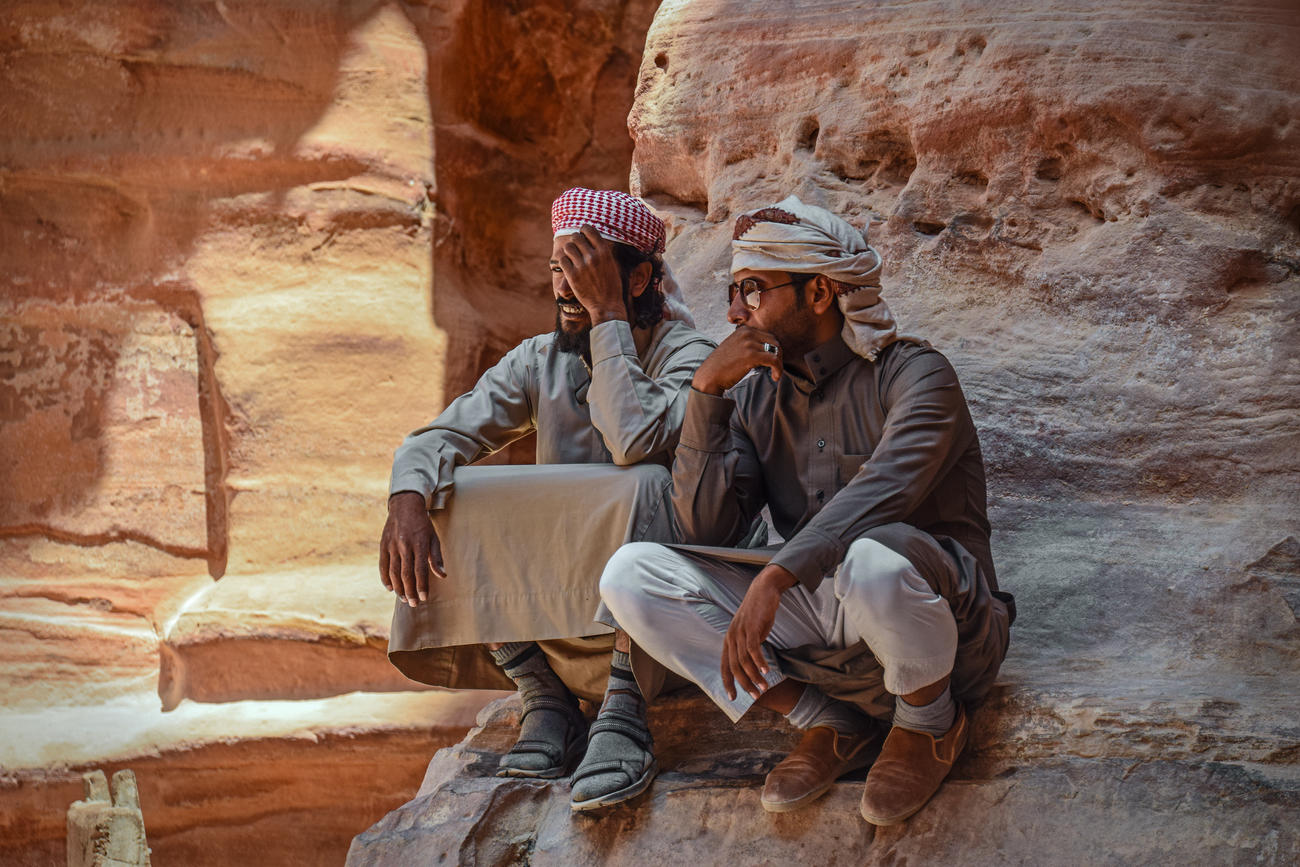
Bordering countries like Saudi Arabia, Iraq, Syria and Israel, Jordan’s safety as a travel destination is often questioned. Yet as Jordanians put it, they are a quiet house surrounded by noisy neighbours. Most accounts from travellers remark on just how friendly and welcoming the people are. The only threat you’re likely to experience is delays as a result of all the invites to people’s homes for tea or being overfed at lunch.
That’s not to say that you shouldn’t still exercise the same caution you should whilst travelling anywhere in the world. There are some minor scams to be aware of and it should go without saying, always be respectful of the culture.
Dress code
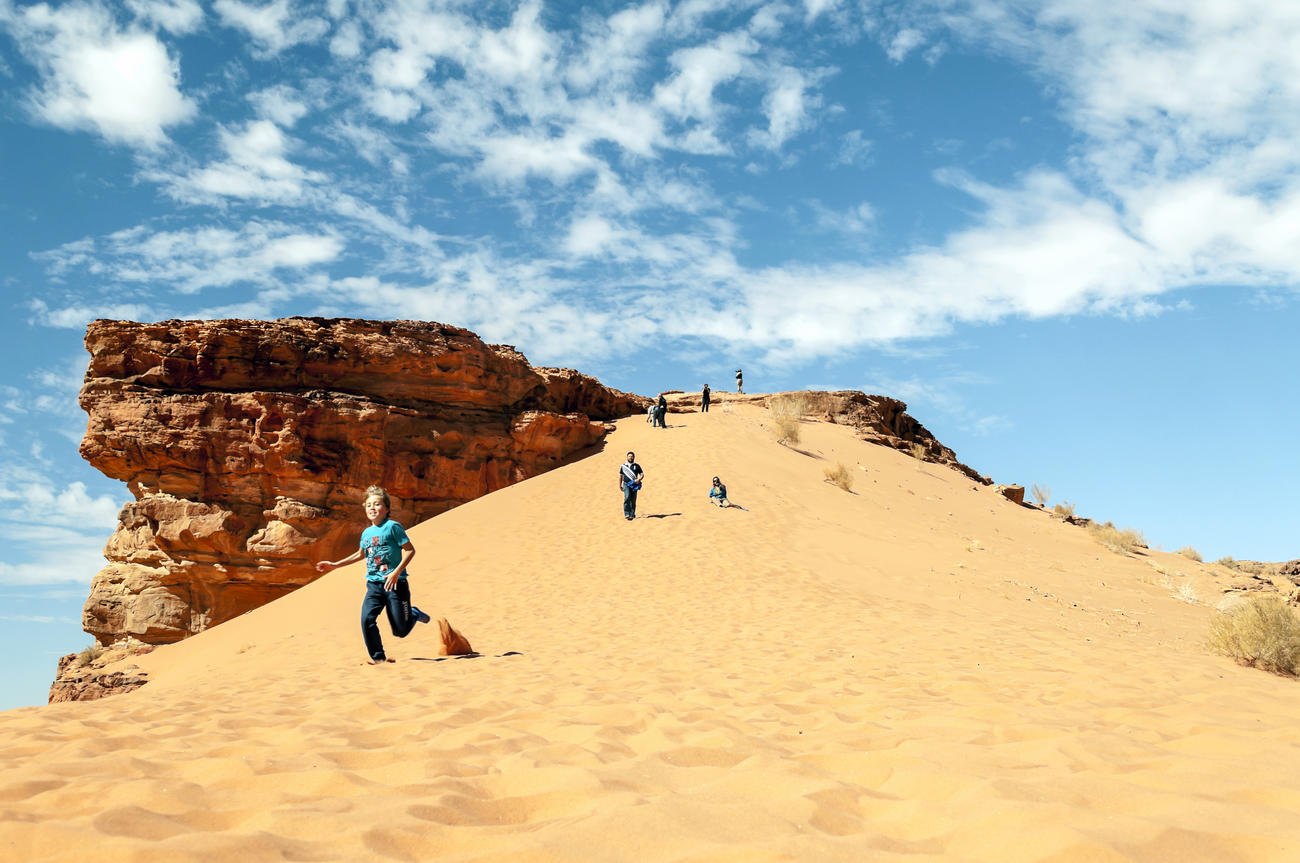
While massively progressive, like in any Muslim country, it’s expected that you dress modestly in Jordan.
Ladies should keep their shoulders, knees, cleavage and midriffs covered and it’s never acceptable for men to be walking around without their shirt. Loose, light and long clothing is best for keeping cool in the scorching Jordanian heat and will protect you from the sun. Not to mention you’ll feel a lot more comfortable and invite more genuine interactions. Jordanians are very welcoming and will want to engage with you, so the best thing you can wear is a smile.
We recommend travelling with a light scarf. It’s hugely versatile but mainly, women will need to cover their head visiting religious sites, including the King Hussein Bin Talal Mosque.
It’s also wise to pack a hat (or that scarf might come in handy) to avoid heatstroke, especially if you’re hiking the Jordan Trail. And on that note, be sure to pack plenty of suncream.
Etiquette
Hospitality is something Jordanian people are known for and they tend to be more carefree than a lot of Arab countries. But to avoid any instances of offending anyone, there are a few things to keep in mind:
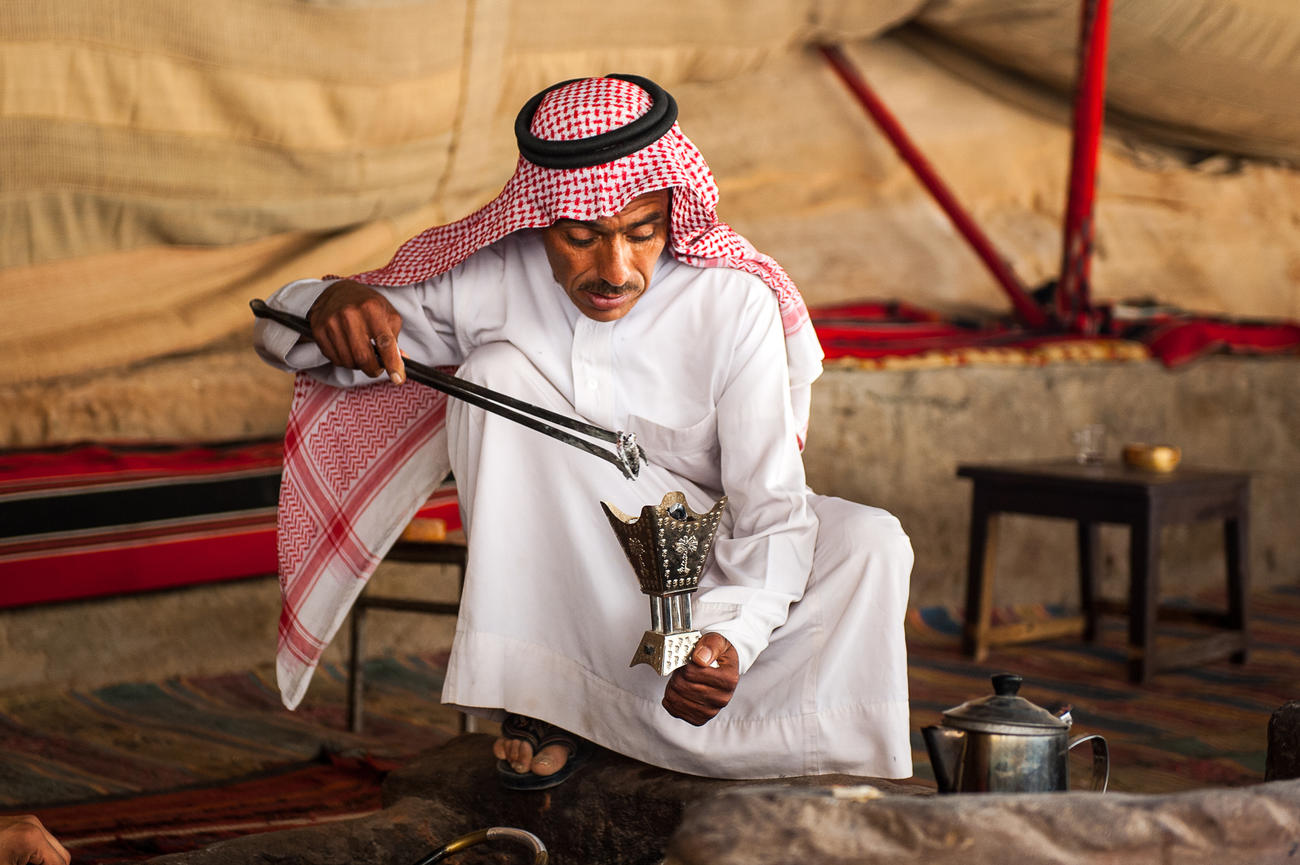
- Jordanians love to feed their guests. Even if you’re full, try not to refuse food when it’s offered to you to avoid offending your host and if you don’t eat meat, don’t show disgust if it’s displayed before you.
- There is a very relaxed attitude when it comes to timekeeping, so it’s best to have a similar attitude to avoid frustration if things run about 20 minutes later than agreed.
- As with any country you travel to, it’s always polite to seek permission before taking someone’s photo. Locals are usually happy to pose, but it’s always best to check first.
- If you’re travelling in a couple, it’s frowned upon to be affectionate with one another in public, even if you’re just holding hands. Homosexual relationships are no different, however, holding hands with someone of the same sex is common between friends. While homosexuality isn’t illegal here, it’s not entirely socially accepted so it’s best to keep this in mind.
- When meeting locals, avoid the typical Jordanian hug and cheek kisses or even a handshake. Instead, let them take the lead. If they go in for a hug, embrace it. Otherwise, a smile and a greeting is a safe bet.
- Avoid touching people of the opposite gender.
- Avoid discussing politics or getting involved in any protests.
- There is a strong tipping culture in Jordan, known as ‘baksheesh’. As a rule, tipping guides, porters and waiters is expected but tipping someone for giving you directions is not.
- When buying souvenirs, haggle! But be prepared. Don’t start unless you intend to buy and have a price in mind as to what you’d like to pay based on what YOU think it’s worth. Invite the seller to start the bidding and take turns until you’re happy with the price.
